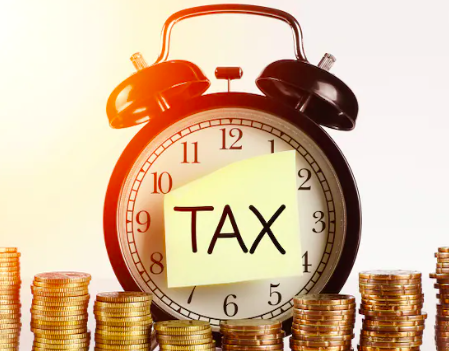Wondering what the Presumptive Taxation Scheme is? It is actually a tax scheme where you need to presume your taxable income for the next year. Yes, you read that right – you will have to presume. Let’s understand this scheme in depth.
This post will tell you about how you can utilize the scheme, what it is, its benefits and disadvantages, and everything else you need to know about the Presumptive Tax Scheme.
Contents
What is the Presumptive Taxation Scheme?
The Presumptive Taxation Scheme or Section 44ADA of the Income Tax Act was initially introduced for small businesses, but now the Government has enabled it to cater to professionals too.
If you are running a small business or have your own professional service, you need to also maintain the accounts of it, right? Well, Presumptive Taxation helps you avoid excessive auditing. It lets you pay tax according to the presumptive income you earn. This means you do not have to estimate income by deducting the expenses from the revenue.
You just have to take the percent of your total revenue and pay tax over that amount.
How Does the Scheme Work?
Maintaining accounting books and having them audited is a tedious job for anyone, especially smaller businesses whose turnover is less than three crore Rupees. It is also a tedious task for professionals with their own business, provided they mostly have less manpower and operate themselves.
Also, when people choose to file taxes according to the regular tax regimes, it tends to be more work when they have to go about looking for various tax deductions.
So, when a person opts for this scheme, it is an easier option.
You also need to remember that this scheme only applies to businesses that are lower than Rs. 3 crore. If it exceeds that amount, they will be opted out of the scheme for the year.
Once you opt for this scheme, you need to opt for it for at least five years. If you have not continued them for five consecutive years, you will be barred from it. We will talk more about these conditions in this article as we go.
Who Can Opt for the Presumptive Taxation Scheme?
The below-mentioned professionals who reside in India can opt for this tax benefit:
- Legal professionals
- Medical professionals
- Engineering professionals
- Interior decorators
- Architects
- Accounts professionals
- Technical consultancies
All these professionals need to ensure their income is less than Rs. 50,000 lakhs per year. Only the professionals in this income bracket will fit into this scheme’s eligibility criteria.
Businesses eligible to opt for the presumptive tax scheme:
- Plying
- Hiring
- Leasing
This list includes any other business or person involved in business with a gross turnover of less than Rs. 3 crore.
Who Cannot Opt for the Presumptive Taxation Scheme?
There are certain individuals who would not be eligible to opt for this option:
- If you are Indian but do not reside here, you cannot opt for this scheme.
- Anyone who is included in an agency business cannot opt for this scheme.
- Commissioned businesses cannot opt for the scheme.
- Companies and LLPs are not eligible to opt for the scheme.
- Individuals who have already made claims in Sections 10A/10AA/10B/10BA or 80HH to 80RRB in the current year can’t opt for the scheme.
- Insurance agents can’t opt for the scheme.
What is the Benefit of the Presumptive Taxation Scheme?
There are several benefits to opting into this scheme, but the most prominent benefits of the scheme stand out to be:
Free From Maintaining Books: There is legally no requirement to maintain accounts books or even carry out income tax audits.
Simpler ITR Filing: You can easily file for ITR through Form ITR 4, which is much easier than filing for income tax through ITR 3.
Reduces Compliance Burden: The business or professional can go on with minimum legal compliance towards taxes. There is no particular need for the individual to allocate deductions and claim them or whatever. It is more like everything they need under one roof.
How Does One Compute Income Under this Scheme?
8% of the gross turnover or gross receipts in the financial year is known to be the total income that is taxable. The Government has also made an initiative to promote digital transactions and encourage small businesses to accept digital payments; income can be computed at 6% instead of 8% for turnover, which is received through account payee cheque, draft, or electronic clearing system of bank account in the previous year.
What Happens if You Opt Out of the Scheme?
If you opt for the presumptive taxation scheme, you need to stay in the scheme for a minimum of 5 years. If you do not comply with it for five years at least, then you will fall out of the scheme, and you can’t opt for it for five whole years.
Also, once you opt out of the scheme, you will have to maintain books of accounts, and you will also be liable for Income Tax Audits from the current year of opting out of the scheme.
Payment of Advance Taxes
When you opt for the scheme, you will be liable to pay the entire amount of advance tax on or even before 15th March of the previous year. If you fail to pay the advance tax by that date of the previous year, you will be liable to pay interest according to Section 234C.
You also have to remember that any amount that is paid by the method of advance tax on or before the 31st day of March will also be treated as advance tax paid during the financial year ending on that day.
Note: You need to remember the Government established section 44AD, section 44ADA, and section 44AE under the presumptive tax scheme. You can navigate to the official portal to find more details on this scheme.
Conclusion
If you are thinking about opting for the presumptive tax scheme, you will have to make sure you fall into the required category and come in eligible. This post can tell you if you fit in the eligibility criteria, and how this scheme actually works. Hope you found what you were looking for over here.

I am Arjun Kumar. I am the owner and administrator of Finance Gradeup. I have completed my education in Arts & Technology. Arjun Kumar usually has interests in playing games, reading and writing. He was a brilliant student during his college days. He also works for many private companies, but the main interest of Arjun Kumar is digital marketing. He thinks that reading is a must before providing any quality information to his readers. You can find Arjun Kumar on much social media handles online, or you can learn more about him in about us page.




